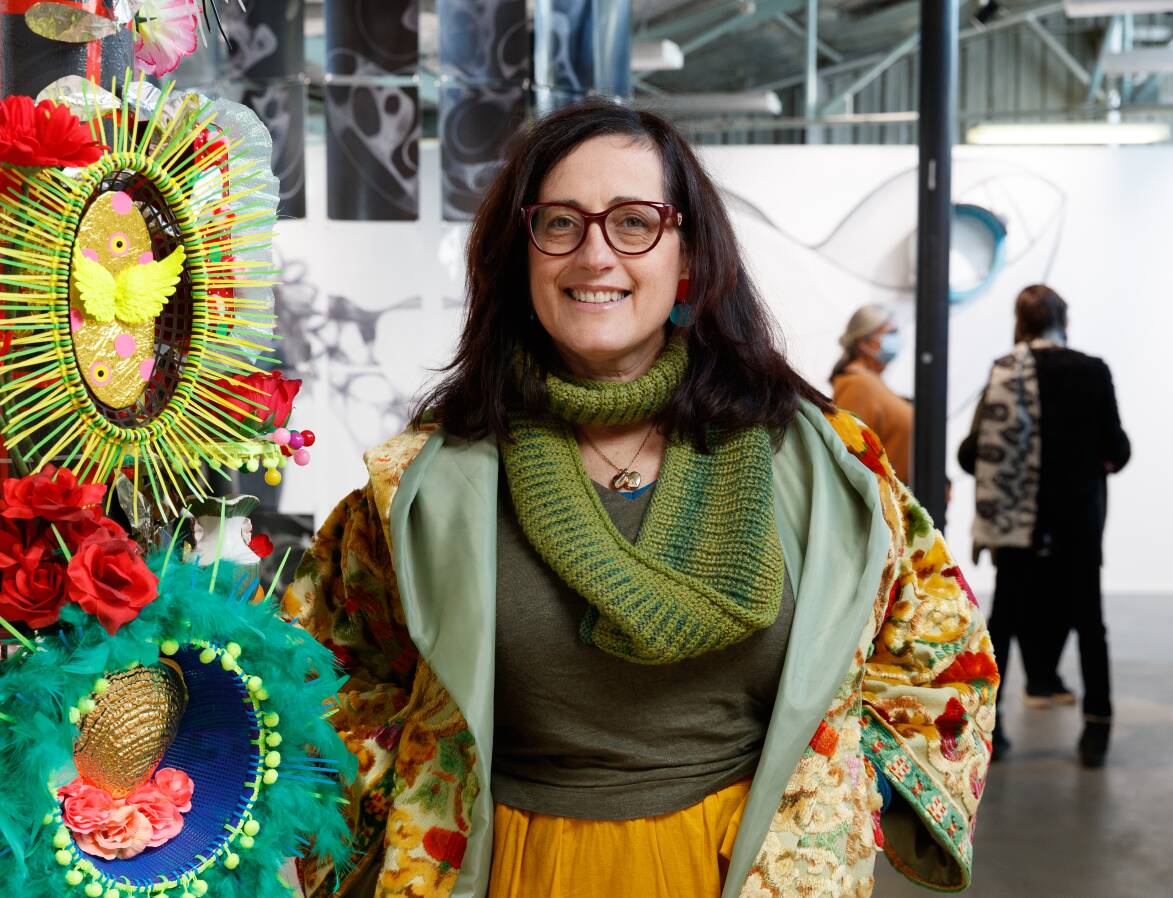
As solitary as the pursuit of art as a career may seem at times, there would be little doubt a helping hand or collaborator can change an artist's direction in life or career.
With that thought in mind, Newcastle Art Space, a longtime local creative collective, began a mentorship program in 2019 that matched 15 mentee artists with 15 mentor artists.
Despite the challenges of dealing with COVID restrictions and all of the hassles associated with the pandemic, the program stayed on track, proving its worth almost beyond expectations.
"I think this program does provide opportunities for artists that just simply aren't there at the moment," says Newcastle Art Space business manager Leah Fawthrop. "To have a program that really is about art is wonderful. We're lucky from that point of view.
"But we've had great support, from lots of people. From established artists, but also from institutions, from Maitland Regional Art Gallery, Newcastle Art Gallery. From MAC as well. And independent galleries. They've been really supportive. And the feedback has been amazing - 'you've got to keep doing it. Keep it going and grow it'."
The formula sees Newcastle Art Space gather commitments from participating mentors who are practising in the world of art, across disciplines including painting, sculpture, jewellery, curation, ceramics, printmaking and illustration. Then mentorship applications are sought (open to the Hunter Region, all seven local government areas).
An independent art professional selects the mentees, matching them with an individual mentor.
The mentor and mentee - neither who is paid fees or stipends (the program is free) - are committed to meet for at least an hour a month, and work towards an exhibit at Newcastle Art Space held at the end of 12 months.
The second year of the program was just completed, and included some well-received professional workshops - on social media, on gallery considerations and curators.
"I think it gives the artists a better framework and a direction of how to grow their - I guess, if you think of creative industries as a business, each individual artist as a business,' Fawthrop says.
"It helps focus them creatively but also from a business point of view - how to approach galleries how do you do that?"
NAS board member Dan Nelson says the organisation ran a consultation at the beginning of the mentorship year and asked the mentees "what do you need to evolve your practice?", and they came up with a range of needs. "We just tailored some workshops to meet those needs," Nelson says.
The gallery considerations workshop was run by professional installers Flynn Doran and Rob Cleworth. Fawthrop says: "We wanted to run that particular workshop so artists really consider how they are going to present their works, how they might frame or install their works, before they even start making them. So they may have a concept or idea they want to develop, but they need to think about the gallery."
The social media workshop was also targeted at the practical reality of today's world.
"At the end of the day, life has changed so much for artists, as to how they now present to galleries. And, really, social media is your gallery," Fawthrop says. "You curate your gallery - get that concept across to an artist: that is where you need to shine, that is where you need to tell your story, and how are you going to tell your story, and what is the best way to tell your story.".
Besides the final exhibition, where mentees and mentors showed their work side by side in the NAS gallery, the most powerful part of the program was probably the data curator session (a closed session), where curators from Hunter area galleries came in and evaluated the shown works in front of the artist.
"That closed session," Fawthrop says, "at the end of it there was a real high in the room, from all of the artists, and even from the curators themselves, because they don't often have that opportunity to come to something that is an exhibition like that, where there are artists at different stages of their career.
"Meet them, talk to them, get the idea of where they came from and where they want to go to. And they were able to give this amazing feedback as to how to work with public galleries.
"The artists walked away mind-blown. They had no idea they would be 'interested in me and what I do'. They wanted to reach out and continue the conversation."
The 2022-23 mentors are (Painting) Peter Gardiner, James Drinkwater, Nigel Milsom, Rachel Milne, Michelle Brodie, Graham Wilson, (Illustration) Nicola Bolton, (Photography) Joerg Lehmann, (Jewellery) Barb Nanshe, (Ceramics) Ali Sobel-Read, Jackie Garcia-Leiluca, (Printmaking) Amanda Donohue, Vera Zulumovski, Chris Clifton, (Curatorial) Madeleine Kelman Snow, (Sculpture/installation) Peter Tilley, Louisa Magrics.







